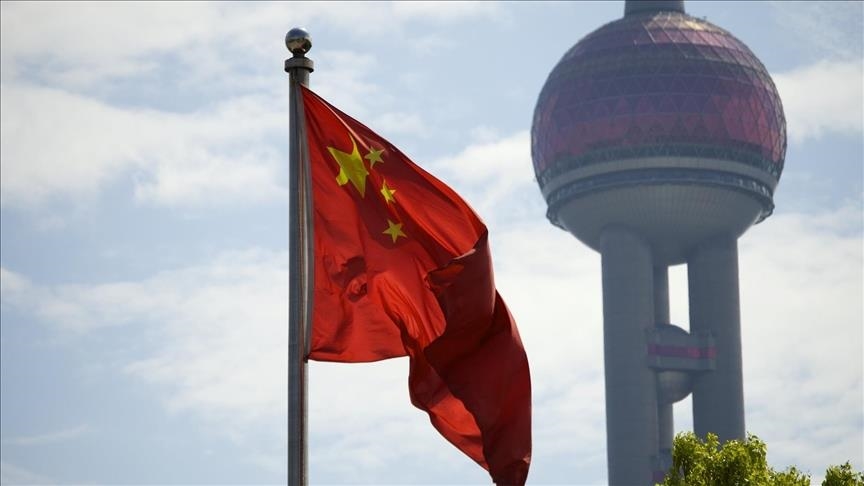

By Anadolu Agency
ISTANBUL
In 3 questions, Yunis Sharifli evaluates the aim and scope of China’s peace proposal in the Ukraine-Russia war for Anadolu’s Analysis Department.
Coinciding with the one-year anniversary of the conflict, China has issued a 12-point position paper calling for a comprehensive cease-fire and gradual de-escalation. The paper instructs both sides to call for a cease-fire, peace talks, protection of prisoners of war, and an end to attacks on civilians, without elaborating, as well as to secure nuclear power plants and facilitate grain exports.
There are political-strategic and economic reasons that encourage China to make a peace proposal after one year. Regarding political-strategic factors, the first is the deterioration of China’s geopolitical situation. The war encouraged the United States (US) and the European Union (EU) to improve their relations and act against Ukraine instead of dividing both sides as expected. Moreover, the war encouraged more countries to join NATO and strengthen transatlantic unity, which is quite detrimental to China’s strategic position.
Finally, Beijing’s development of trade relations with Russia and claim of China’s arms assistance to Russia further trigger the “China Threat” perception and damage its reputation in the international community. Consolidation of the Euro-Atlantic world and the growing hostility towards China threaten Beijing’s strategic position in the short and long term against the background of the intensification of great power competition between China and the United States. In this regard, China’s peace proposal can be seen as a continuation of China’s course correction. This includes resetting relations with the EU, the Middle East and Southeast Asian countries since the beginning of the year. The main goal is to reduce the negative perception and improve China’s reputation as a responsible stakeholder.
Economic factors also play a key role in understanding China’s motivation for the proposal. First, war undermines China’s Belt and Road Initiative because growing sanctions against Russia and Iran make it difficult to maintain train service through both the northern and southern routes, passing by the Russian and Iranian territories. The growing instability pushes international companies to use maritime routes, which also increases China’s dependence on maritime routes, thus increasing its vulnerability across the US.
Furthermore, high prices of energy resources and basic food products and supply chain disruptions affect Chinese people’s purchasing power and China’s overall economic growth negatively. Uncertainty in the global economy makes it difficult for China to achieve its annual economic growth target. In this context, points 9, 10, and 11 of China’s position paper which deals with facilitating grain exports, stopping unilateral sanctions, and maintaining industrial and supply chain stability, reflect China’s economic interest in ending the war.
There were a number of reactions to China’s peace proposal. Russia announced that it was open to the proposal and can achieve its goal in Ukraine through diplomatic and political negotiations. Ukrainian President Volodymyr Zelenskyy welcomed some elements of the peace proposal, especially the first point, which emphasizes respect for the sovereignty and territorial integrity of all nations. However, Zelenskyy announced that [10] any peace settlement could not be reached without Russia’s complete withdrawal from the territory of Ukraine.
The West reacted negatively to China’s peace proposal. EU foreign policy chief Josep Borrell said China’s proposal for resolving the Ukraine war was “interesting” but not a full-fledged plan that would lead to peace. Moreover, he said, the position paper does not really distinguish between the aggressor and the victim, putting the parties on an equal footing.
NATO Secretary General Jens Stoltenberg echoed the skepticism about Beijing’s peace proposal. He said that China lacks credibility because it has not condemned Russia’s illegal “invasion” of Ukraine. US Secretary of State Antony Blinken said that China is trying to appear neutral and seeking peace but, in parallel, continues to support Russia’s narrative of war. Blinken said, “There are 12 points in the Chinese plan. If they were serious about the first one, sovereignty, this war could end tomorrow.”
Beijing’s peace plan may have no effect on the Ukraine-Russia war for several reasons. First, although Beijing calls itself an impartial power, it is not considered a neutral power in the West and in Ukraine because of its pro-Russian stance. Moreover, China’s peace plan is not a detailed plan, it is vague and lacks concrete steps. In this context, it seems to be unacceptable from the Ukrainian side without points demanding the withdrawal of Russian troops.
Second, Western countries have already reacted negatively to the peace proposal. The allegations of China’s military support to Russia and the intensification of strategic competition between the US and China add to the complexity and make it difficult for the two sides to negotiate peace proposals.
Finally, despite the negative political and economic impact of the war on China, Beijing still does not want to take on the responsibility of a mediator and probably will not continue to insist on the implementation of this peace proposal. The main goal of the proposal has been to enhance China’s role as a major responsible power, strengthen its position in the Global South as an alternative peacemaking country to the West; and reduce negative perceptions of China in Europe.
*Opinions expressed in this article are the author’s own and do not necessarily reflect the editorial policy of Anadolu.
We use cookies on our website to give you a better experience, improve performance, and for analytics. For more information, please see our Cookie Policy By clicking “Accept” you agree to our use of cookies.
Read More